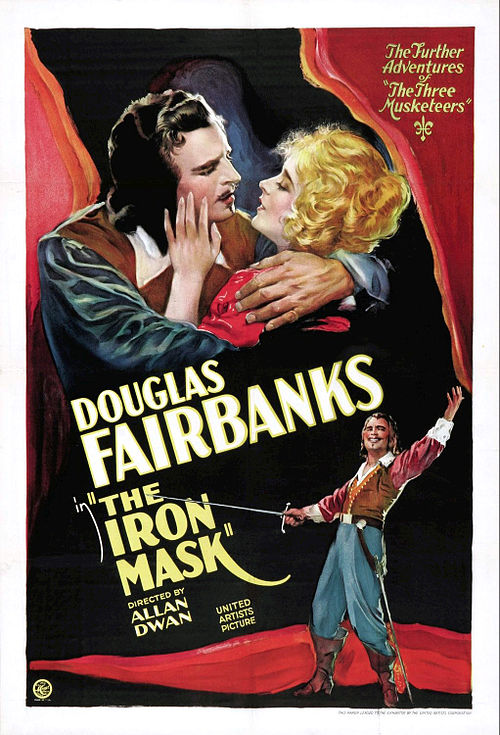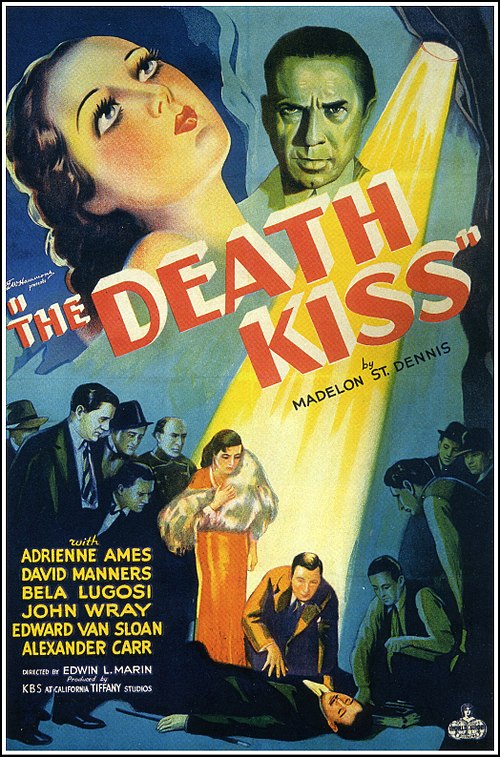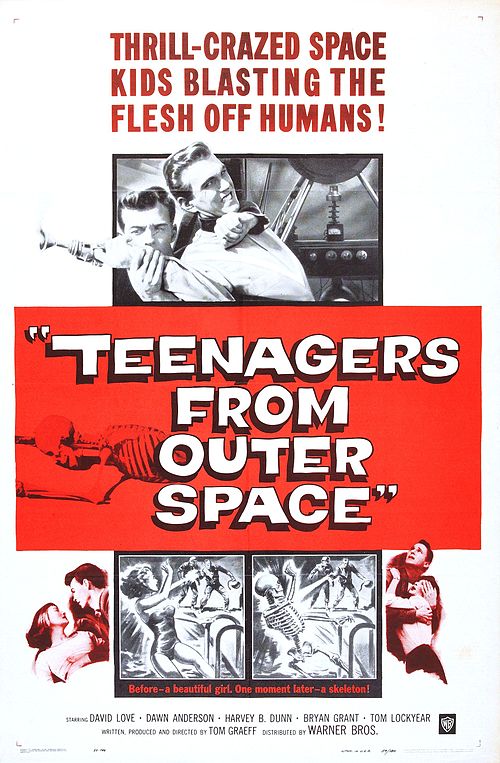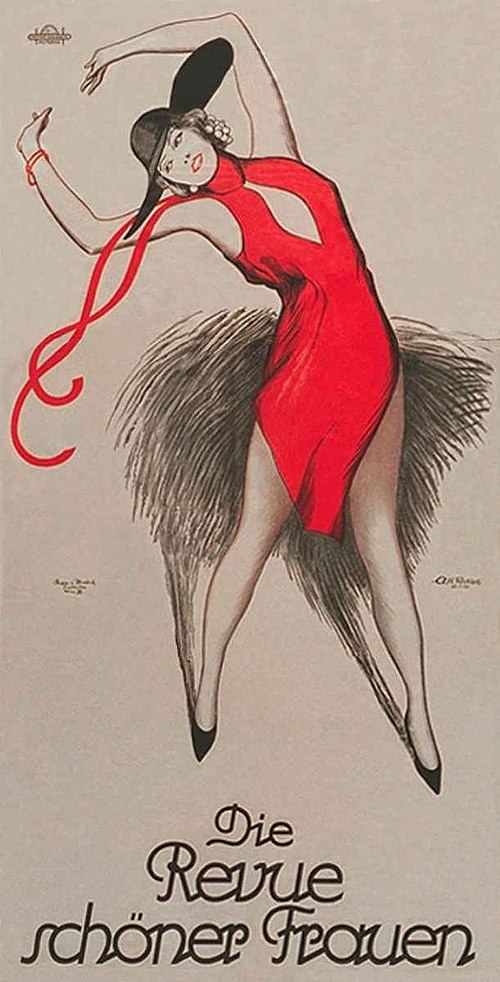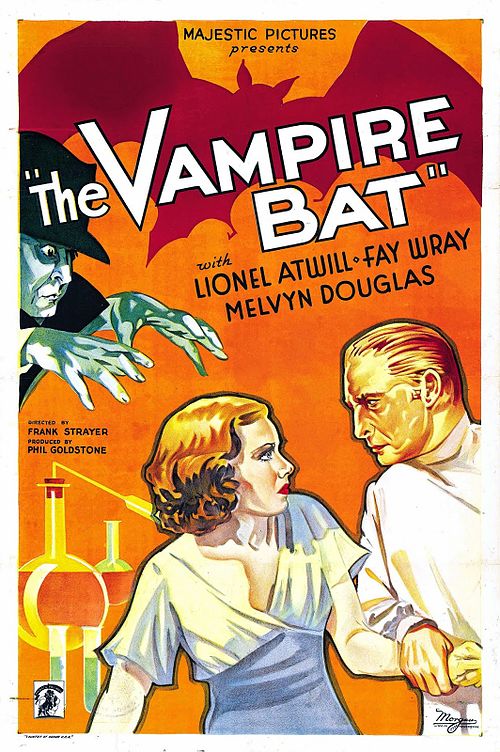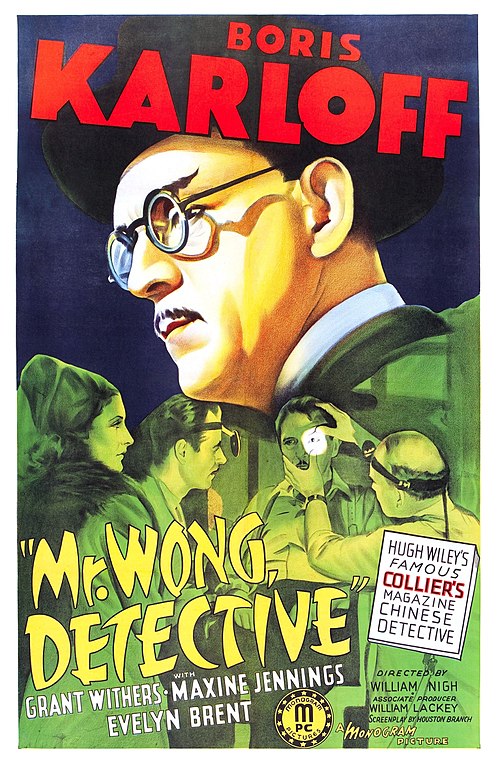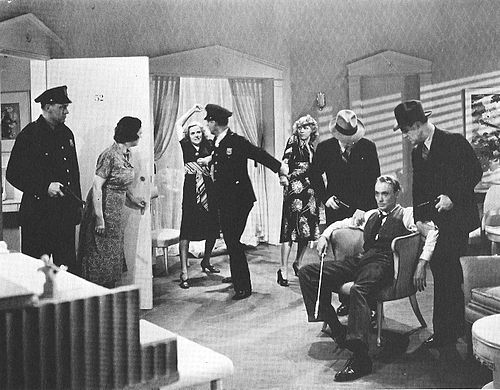
Other Versions of this Movie
Reefer Madness
Considered THE archetypal sensationalized anti-drug movie, but it's really an exploitation film made to capitalize on the hot taboo subject of marijuana use. Like many exploitation films of the time, "Reefer Madness" tried to make a quick buck off of a forbidden subject while skirting the Motion Picture Production Code of 1930. The Code forbade the portrayal of immoral acts like drug use. (The illegal drug traffic must not be portrayed in such a way as to stimulate curiosity concerning the use of, or traffic in, such drugs; nor shall scenes be approved which show the use of illegal drugs, or their effects, in detail.) The film toured around the country for many years - often being re-edited and re-titled ("Tell Your Children", "Dope Addict", "Doped Youth", "Love Madness", "The Burning Question"). It was re-discovered in the early 1970s by NORML (National Organization for the Reform of Marijuana Laws) and screened again as an example of the government's demonization of marijuana. NORML may have been confused about the film's sponsorship since one of the film's distributors, Dwain Esper, testified to the Arizona Supreme Court that "Reefer Madness" was not a trashy exploitation film but was actually sponsored by the U.S. Government - a convincing lie, but a lie nonetheless. That being said, the film is still quick enjoyable since it dramatizes the "violent narcotic's ... soul destroying" effects on unwary teens, and their hedonistic exploits enroute to the bottom. You can find more information regarding this film on its IMDb page. Also, if you are interested in the rich, uniquely American history of exploitation films, there are two excellent books on the subject: "Forbidden Fruit - The Golden Age of the Exploitation Film", Felicia Feaster and Bret Wood, Midnight Marquee Press, 1999. "Bold! Daring! Shocking! True! A History of Exploitation Films, 1919 - 1959" Eric Schaefer, Duke University Press, 1999.
</>< name=tcmopi></> or 1939< name=mathijs></>< name=senn></>
| runtime = 68 min. <!-- US duration: 1:08:17 -->
| country = United States
| language = English
| budget = $100,000
}}
File:Reefer Madness.webm
Reefer Madness (originally made as Tell Your Children and sometimes titled as The Burning Question, Dope Addict, Doped Youth and Love Madness) is a 1936–1939 American propaganda exploitation film revolving around the melodramatic events that ensue when high school students are lured by pushers to try cannabis (drug)—from a Hit and run (vehicular), to manslaughter, suicide, attempted rape, and descent into insanity due to marijuana addiction. The film was directed by Louis J. Gasnier and starred a cast composed of mostly unknown bit actors.
Originally financed by a church group under the title Tell Your Children, the film was intended to be shown to parents as a morality tale attempting to teach them about the dangers of cannabis use.< name="History"/> However, soon after the film was shot, it was purchased by producer Dwain Esper, who re-cut the film for distribution on the exploitation film circuit beginning in 1938/39 through the 40s and 50s.< name="History"/>
The film was "rediscovered" in the early 1970s and gained new life as satire among advocates of Decriminalization of non-medical cannabis in the United States.< name="History"/>< name="Peary"></> Although finding a popular audience as a cult film, critics have panned it as List of films considered the worst. Today, it is in the public domain in the United States.
Plot
Mae Coleman (Thelma White) and Jack Perry (Carleton Young)—a couple living in sin, sell marijuana. Mae pers to sell marijuana to customers her own age, whereas Jack sells the plant to young teenagers. Ralph Wiley (Dave O'Brien (actor)), a psychotic ex-college student turned fellow dealer (and addict, according to the film), and Blanche (Lillian Miles) help Jack sell cannabis to young students. Young students Bill Harper (Kenneth Craig) and Jimmy Lane (Warren McCollum) are invited to Mae and Jack's apartment by Blanche and Ralph. Jimmy takes Bill to the party. There, Jack runs out of reefer. Jimmy, who has a car, drives him to pick up some more. Arriving at Jack's boss' "headquarters," he gets out and Jimmy asks him for a cigarette. Jack gives him a joint (cannabis). Later, when Jack comes back down and gets into the car, Jimmy drives off dangerously, along the way running over a pedestrian with his car. A few days later, Jack tells Jimmy that the pedestrian died of his injuries. Jack agrees to keep Jimmy's name out of the case, providing he agrees to "forget he was ever in Mae's apartment". Jimmy does indeed escape the consequences of his crime—a rare occurrence in the film.Bill begins an affair with Blanche. Mary (Dorothy Short), Jimmy's sister and Bill's girlfriend, goes to Mae's apartment looking for Jimmy, and accepts a joint from Ralph, thinking it to be a normal cigarette. When she uses Ralph's advances, he tries to rape her. Bill comes out of the bedroom after having sex with Blanche, and hallucinates that Mary strips for Ralph. He attacks Ralph, and as the two are fighting, Jack tries to break it up by hitting Bill with the butt of his gun. The gun goes off and Mary is killed. Jack puts the gun in the hand of an unconscious Bill, and wakes him up. Bill sees the gun in his hand, and is led to believe that he has killed Mary. The group of dealers lies low for a while in Blanche's apartment while Bill's trial takes place. Ralph, losing his sanity, wants to tell the police who is actually responsible for the death of Mary. The film attributes Ralph's insanity to marijuana use.
File:ReeferMadness 14.jpg
Seeking advice from his boss, Jack is told to shoot Ralph so he keeps his mouth shut. Meanwhile, at the apartment, Blanche offers to play some piano music for Ralph to keep his mind off things. They are both very high, and Ralph tells her to play faster. She increases her playing speed to a downright cartoon-like speed in one of the film's most famous and over-the-top sequences. Jack shows up and Ralph immediately senses that Jack wants to kill him, so he kills Jack by beating him to death. The police arrest Ralph, Mae, and Blanche. Mae talks, and the criminal gang is rounded up. Blanche explains that Bill was innocent, and he is released. Blanche is then held as a material witness for the case against Ralph, but rather than testify against him, Blanche jumps out a window and falls to her death. Ralph is put in an asylum for the criminally insane "for the rest of his natural life." Mae's ultimate fate is unspecified.
The film's story is told in Inclusio sequences at a lecture given at a Parent-Teacher Association meeting by high school Principal (school), Dr. Alfred Carroll. At the end of the film, he tells the parents he has been talking to that events similar to those he has described are likely to happen again, and then points to random parents in the audience and warns that "the next tragedy may be that of your daughter ... or your son ... or yours, or yours ..." before pointing straight at the camera and saying emphatically "... or YOURS!" as the words "TELL YOUR CHILDREN" appear on the screen.
Cast
- Dorothy Short as Mary Lane
- Kenneth Craig as Bill Harper
- Lillian Miles as Blanche
- Dave O'Brien (actor) as Ralph Wiley
- Thelma White as Mae Coleman
- Carleton Young as Jack Perry
- Warren McCollum as Jimmy Lane
- Pat Royale as Agnes
- Josef Forte as Dr. Alfred Carroll
- James Ard as Officer Chuckman
- Harry Harvey (actor) Jr. as Junior Harper
History
File:ReeferMadness 13.jpgIn 1936 or 1938,< name=howell></> Tell Your Children was financed and made by a church group and intended to be shown to parents as a morality tale attempting to teach them about the dangers of cannabis use.< name="History"></>< name="Peary"/>< name="Commentary"></> It was originally produced by George Hirliman;<></> however sometime after the film was made, it was purchased by notorious exploitation filmmaker Dwain Esper, who inserted salacious shots.< name="History"/> In 1938< name=pdreview/>< name=tcmopi/> or 1939,< name=mathijs/>< name=senn/> Esper began distributing it on the exploitation circuit< name="History"/> where it was originally released in at least four territories, each with their own title for the film:< name=peter/> the first territory to screen it was the south, where it went by Tell Your Children (1938 or 1939< name=povrow/>). West of Denver, Colorado, the film was generally known as Doped Youth (1940< name=povrow/>). In New England, it was known as Reefer Madness (1940< name=povrow></> or 1947< name=howell/>), while in the Pennsylvania/West Virginia territory it was called The Burning Question (1940< name=peter></></>< name=anderson/> As part of a fundraising campaign, NORML showed Reefer Madness on college campuses up and down California, asking a dollar donation for admission and raising $16,000 towards support for the California Marijuana Initiative, a political group that sought to legalize marijuana in the fall '72 elections.< name=anderson></> Robert Shaye of New Line Cinema eventually heard about the cult hit and went to see it at Bleecker Street Cinema.< name=shaye/> He noticed the film carried an improper copyright notice and realized it was in the public domain.< name=shaye></> Seeking material for New Line's college circuit, he was able to obtain an original copy from a collector and began distributing the film nationally "making a small fortune for New Line".</>
The film was spoofed in Reefer Madness (musical), which was later made into a Reefer Madness (2005 film) in 2005, which featured actors such as Alan Cumming, Kristen Bell, Christian Campbell, and Ana Gasteyer.
Reception
The Los Angeles Times has claimed that Reefer Madness was the first film that a generation embraced as "the worst".<></> Leonard Maltin has called it "the grand-daddy of all "Worst" movies".< name="Maltin01211"></> Las Vegas CityLife named it the "worst ever" runner-up to Plan 9 from Outer Space,<></> and AMC (TV channel) described it as "one of the worst movies ever made".<></>Derivatives
File:Reefer (color) 01.JPGThe movie has inspired a number of parodies, including an off-Broadway musical satire called Reefer Madness (musical) and a 2005 film of the musical called Reefer Madness: The Movie Musical.
In 2004, 20th Century Fox, in collaboration with Legend Films, released a film colorization version of the film on DVD.<></> The original release date was April 20, 2004, a erence to the drug slang term "420 (cannabis culture)". Also during the film, the number "4" and then "20" is flashed very quickly (as a joke on subliminal messages), which is an effect added by Legend Films. The color version features intentionally unrealistic color schemes that add to the film's unintentionally camp (style) humor. The smoke from the "marihuana" was made to appear green, blue, orange, and purple, each person's colored smoke representing their mood and the different "levels of 'addiction'"..</> A DivX file of the colorized version with the commentary embedded is available as part of Nelson's RiffTrax service.<>.</> In 2009, a newly recorded commentary by Nelson, Kevin Murphy (actor) and Bill Corbett, called the "Three Riffer Edition", was released by RiffTrax,<></> and was the feature of a Rifftrax live event on August 19, 2010.
See also
- Hemp for Victory
- List of films in the public domain
- Perversion for Profit
Category:1936 films
Category:1930s drama films
Category:American drama films
Category:American social guidance and drug education films
Category:Black-and-white films
Category:English-language films
Category:Films about cannabis
Category:Films directed by Louis J. Gasnier
Category:Exploitation films
Category:Independent films
Category:New Line Cinema films


